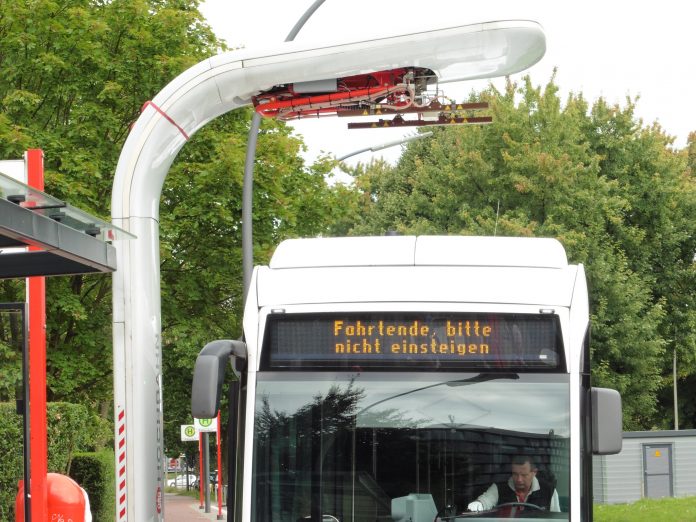The purchase of electric buses and related recharging infrastructure by public transport operators in Germany has been given the green light by Brussels. The European Commission on February 26 announced the scheme is in line with European Union state aid rules.
“This scheme is another positive example of how to fight global warming” said EU Commissioner Margrethe Vestager, in charge of competition policy. “In line with the EU environmental goals, it will give public transport operators an incentive to invest in low or zero emissions vehicles with the clear objective of reducing CO2 emissions and improving air quality.”
According to a European Commission press release, the scheme set up by Germany with a budget of €70m will support public transport operators until the end of 2021, covering the additional costs for: the acquisition of electric and plug-in-hybrid buses rather than conventional diesel buses, and construction of related electric charging infrastructure required for the operation of these buses.
The public scheme incentivises bus operators to invest in this type of vehicle and in the necessary charging infrastructure. It’s expected to increase the number of such buses in Germany and thereby reduce CO2 and air pollutant emissions, in particular in cities.
According to the European Commission, it is also in line with the European Strategy for low-emission mobility, and its support for the move towards zero-emission vehicles in cities and for creating a market for such vehicles. Energy efficiency is key to Europe’s clean energy transition and a central element for achieving the Paris Agreement pledge to cut emissions in the EU by at least 40% by 2030.

